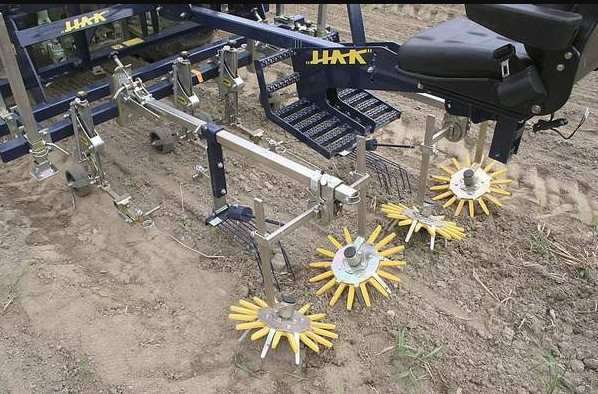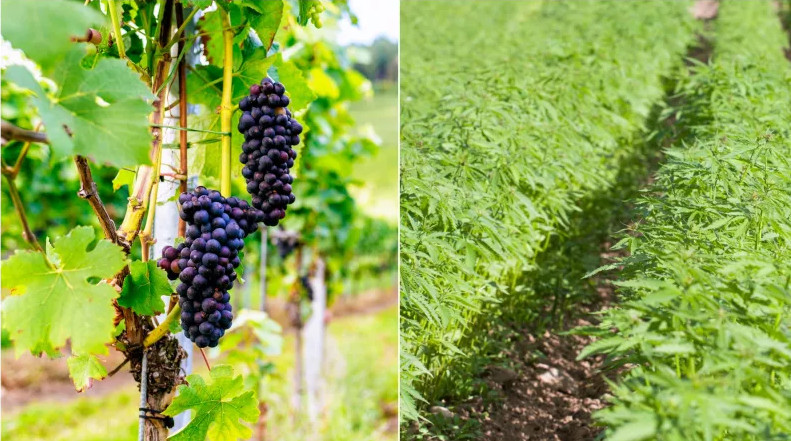Eric Gallandt, a University of Maine weed ecologist, has unveiled several findings in recent years that could dramatically improve weed management in organic vegetable production.
As such, Gallandt has been a featured speaker at mechanical cultivation field days across the country.
On Aug. 16, Gallandt will be in Corvallis, speaking to participants in an Oregon State University Mechanical Cultivation Field Day at the OSU Vegetable Research Farm, 34306 N.E. Electric Road, Corvallis. The field day, which also features equipment demonstrations, will be from 10 a.m. to 5 p.m.
In a phone interview, Gallandt said he and a University of Maine graduate student, Bryan Brown, have been able to show that by stacking cultivation tools, weed control is dramatically improved in organic vegetable production systems.
“One of the more promising discoveries we’ve found in the last couple of years is that by using multiple tools in a single pass, or using multiple tools in sequence, is that you often get more than additive improvements in the percentage of weeds you kill. We have evidence of synergy,” Gallandt said.
“So, for example, if you take two different tools, one of which gives you 30 percent weed control, the other of which gives you 20 percent weed control, and you use them together, you don’t just get 50 percent weed control. You might get 75 percent weed control,” he said.
“And that holds true across challenging conditions, so across increasing soil moisture, across increasing size of weeds and other conditions,” he said.
In addition, Gallandt is researching the use of longer-term weed management strategies, including use of cover crops, in combination with stacking mechanical weed control.
“By combining some strategies to reduce the weed seed bank with improved physical weed control, we should be able to help farmers experience improving weed management circumstances over time,” he said.
In general, weed control in organic vegetable production systems has shown no improvement over time, he said, and in many cases, has worsened.
The strategies take more work than is employed in most organic vegetable production systems, he said, but can bring significant dividends.
“We’ve got some pretty decent evidence that this is the case,” he said. “For example, we did a nice experiment in onions that showed that longer-term seedbank management strategies that require more work can actually pay off, even in the short term, because of improved yields and improved quality.
“So, certainly if you look at it over the longer term, it is something that has the promise to increase profitability, and, in the case of using cover crops, for example, could be used for multiple benefits,” he said.
OSU Small Farms Extension agent Clare Sullivan, who along with fellow agent Nick Andrews, is putting together the field day, said the idea for the event came about because of interest among Oregon growers in a similar event held last year at Michigan State University, and because growers have struggled to use cultivation tools.
“There is a lot of interest in mechanical cultivation implements, especially from mid-sized organic growers, but we hear from a lot of them that they struggle to use the tools effectively,” Sullivan said. “We wanted to put on an educational event that shared the best practices to prepare your fields to use cultivation implements, and also have the equipment dealers show in-person how to adjust the tools to work effectively.
“The neat thing about this is it is targeted toward vegetable growers of all different sizes and, while it is primarily geared toward organic production, conventional growers can benefit from this as well,” Sullivan said.
Field Day
The OSU Small Farms Program’s Mechanical Cultivation Field Day is scheduled from 10 a.m. to 5 p.m. on Aug. 16 at the OSU Vegetable Research Farm, 34306 N.E. Electric Road, Corvallis.
The program includes live demonstrations of cultivation equipment and presentations by speakers, including keynote speaker Eric Gallandt, a weed ecology professor at the University of Maine.
The OSU Small Farms Program asks that participants register online by Aug. 10 at smallfarms.oregonstate.edu/mechanical-cultivation-field-day-corvallis.
Admission is $25 and includes lunch.
Credit: www.capitalpress.com



